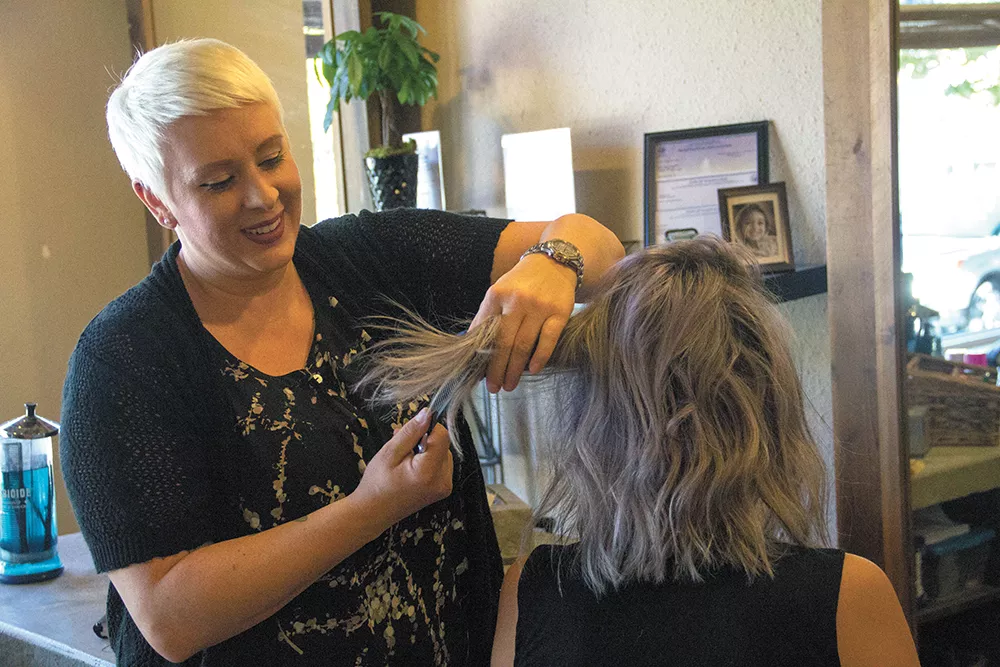When 15-year-old Willow passed out on the bathroom floor, her mother rushed her to the emergency room. Acutely aware that Willow had been experiencing extremely heavy periods, she advised the ER staff.
"We weren't taken very seriously until the labs came back and the staff realized she was two points below the level requiring a blood transfusion," Willow's mother says.
Willow has polycystic ovarian syndrome (PCOS), a complex endocrine disorder that causes small cysts to form on a woman's ovaries. The cysts themselves are not harmful but cause hormonal upheaval, leading to an excess of male hormones (androgens), and resulting in cascade of difficulties, ranging from heavy or nonexistent periods and difficulty getting pregnant to increased risk of obesity, diabetes and high blood pressure and acne, excessive hair on the face or body, and thinning hair on the scalp.
Approximately one in 10 women in the United States have PCOS, and about 200,000 new cases are diagnosed each year, yet it continues to remain under the radar.
"None of my doctors ever diagnosed me with PCOS," says 31-year old Melanie Hewitt, "even though I never had a regular menses, ever. I also had really bad acne, thick hair on my chin and abdomen. My mother did a lot of research, and she was the one who first suggested it was PCOS."
"When I was a teenager, doctors weren't too concerned with my irregular periods, and the only option they offered was to put me on birth control," says 35-year-old Jennifer Myers, "but I couldn't find one that didn't make me super nauseous. When I was 18 and just graduated high school, my period quit for a year and that prompted me to go see a gynecologist. At one point when I was 25 years old, an ER doctor prescribed a high dose of progesterone to help stop an incredibly painful and overly heavy flow period."
R. Steven Brisbois, MD, calls PCOS the "silent impactor." He has been involved with women's reproductive issues for the past 37 years and is currently Medical Director for Women's Services for Providence and Medical Director of the Providence Center for Gynecology, Robotics and Minimally Invasive Surgery.
"Women have burst into tears in my office out of relief when I tell them they have polycystic ovarian syndrome," says Brisbois. "They are just so relieved to be able to put a name to what is going on in their bodies, and to find out what can be done to control PCOS symptoms."
Shame, guilt and depression are often PCOS' nagging companions, and women wonder what they could do differently, as well as how they will cope with the outward and inward malady that is PCOS.
"PCOS probably does not cause depression, but when a woman feels bad about her looks and cannot get pregnant no matter what she does, she's probably going to feel helpless and sad," Brisbois says.
Hewitt says not being able to get pregnant and not feeling beautiful because of acne and body hair were the worst parts of PCOS. She has taken birth control pills in the past and was able to conceive two healthy children without medical help.
When Myers got married, she tried unsuccessfully to get pregnant. Her doctor did not give her the option of hormone therapy, and she was not able to conceive. She has since divorced, but the anguish of not being able to have a child is still with her: "When I was married and wanted to become pregnant, I just couldn't, and I wanted to have children more than anything."
Threading the hormonal needle that is PCOS can be complicated, stressful and disheartening, but a knowledgeable physician can help control symptoms and, ultimately, fertility.
"I explain to women, you will have this for the rest of your life, and it needs to be monitored," Brisbois says. "It is what it is, but it is not the end of the world. We can control PCOS with medications, and you will be able to have a baby." ♦
Treatment Options
Metformin: An insulin-modulating drug commonly used in the treatment of diabetes.
Birth control pills: Protect uterine lining and suppress the ovaries from making male hormones.
Spironolactone: A diuretic that decreases testosterone production.















